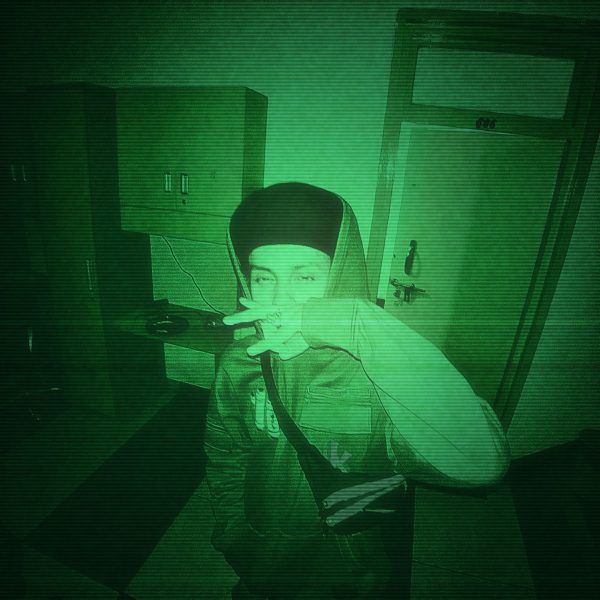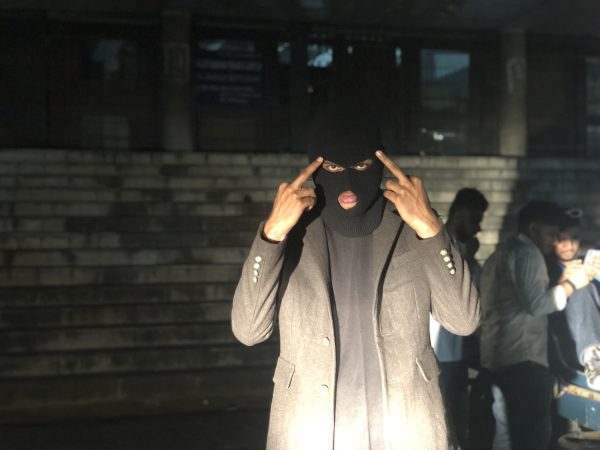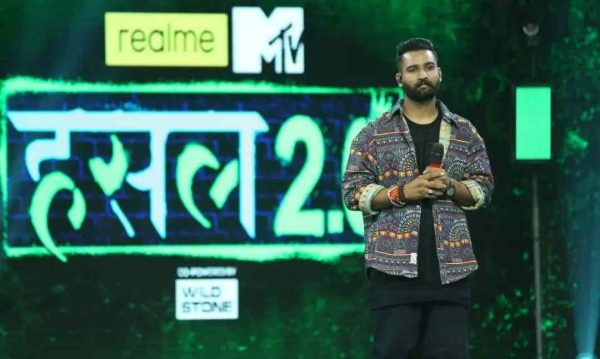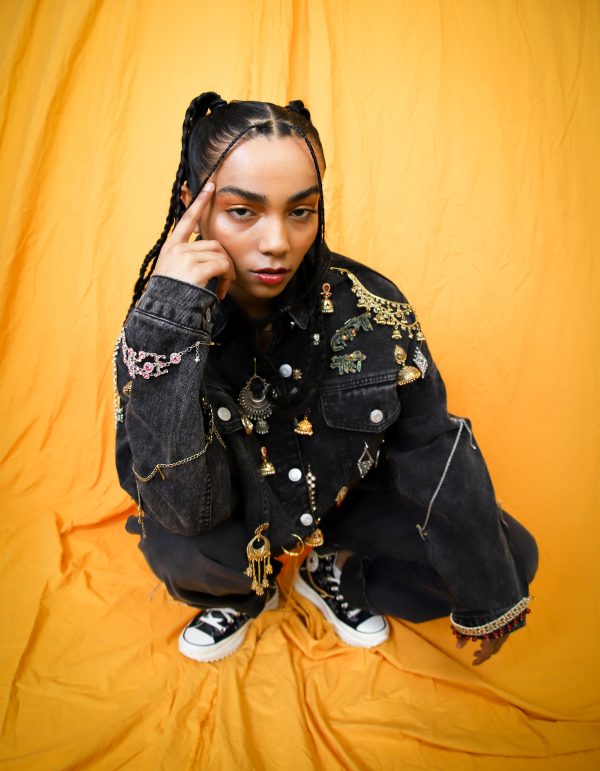Gujarat isn’t just a hub for business moguls — it’s also where some seriously talented artists are making waves. Case in point: Bhadrankar, repping Vadodara city. This dude’s not just your average artist, he’s a rapper and a producer, and he’s been making waves with his latest mixtape, “Rasto Ki Kavita.” Recently, we managed to snag a sit-down with this rising star to dissect every juicy detail of the project — from crafting the beats to those intense booth sessions. Here’s the full interview:
Can you take us back to the beginning of your journey with this Mixtape? What sparked the initial thought, and how did crafting the project begin for you?
Truth is, I didn’t really have a set concept in mind for this Mixtape. I was just messing around with some fresh sounds and vibing with whatever emotions hit me that day. My routine was pretty chill — wake up, cook up some beats, jot down whatever caught my eye during the day, and then hit the studio at night to lay down tracks. You know how it goes! I’ve always been into the freedom of Mixtapes. There ain’t no rules, no constraints. You can go raw, skip the hooks, and just experiment however you feel like.
Given the limitations in resources, how did you ensure ‘Rasto Ki Kavita’ achieved its desired sound?
Back in 2020, I was dead broke and couldn’t splurge on fancy beats. Plus, there weren’t any producers in my city willing to toss me some free beats. So, I decided to take things into my own hands. I hustled odd jobs as a delivery guy and a tutor to scrape together enough cash to set up a basic bedroom studio.
Being Gujarati, I thought, why not produce my own music and cut out the middleman entirely? It took me a solid two years of grinding, locked in that room, teaching myself how to produce using FL Studio. I recorded the entire Mixtape in that janky bedroom setup. All it really takes is curiosity and hunger to make things happen at the end of the day.
Your Mixtape’s production stands out for its seamless fusion of diverse musical elements, from the Grime adlibs reminiscent of Griselda on the grand opening track ‘Jatayu’ to the masterful incorporation of Indian Classical instruments like the Sitar on ‘Do Duni Chaar’ and the Flute on the title track. Can you delve into the decision-making process behind selecting specific instruments and sonic textures to evoke the desired emotions throughout the project?
Right from the get-go, I aimed to whip up something that felt both fresh and relatable. Adding Indian elements into tracks like ‘Do Duni Chaar’ and the title track struck that perfect balance for me. Like, using the Sitar alongside heavy 808s or spitting bars over flute melodies with minimal drums — those were intentional moves to mix traditional sounds with modern beats. And yo, speaking of Griselda, Westside Gunn, I’m all about his beat choices. Taking cues from artists like him, I wanted to blend everything up and cook up something uniquely Indian yet familiar at the same time. It’s all about blending influences and crafting your vibe, you know?
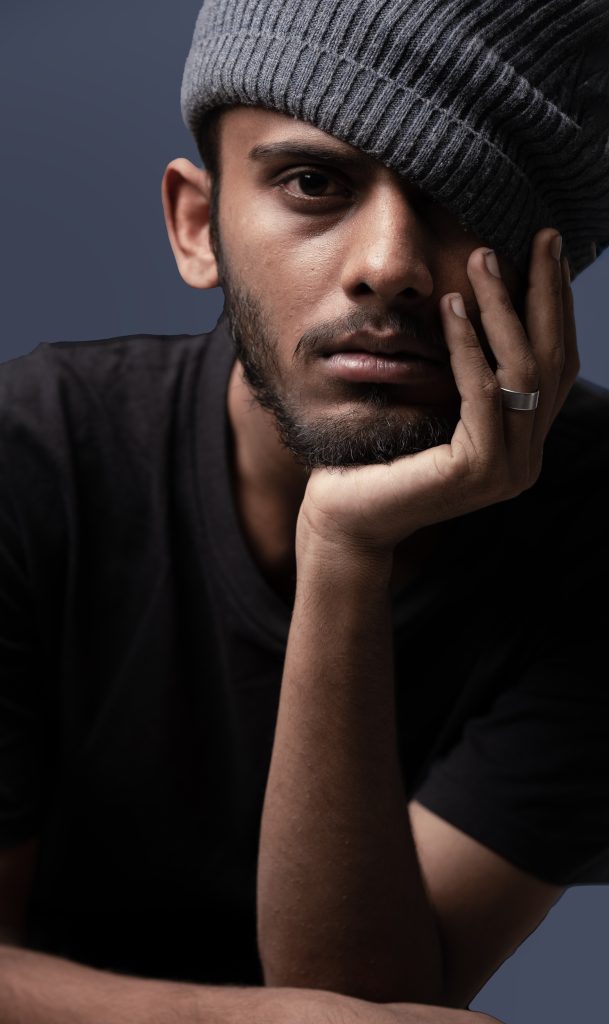
In creating your mixtape, did you collaborate with other artists or producers? How did you utilize networking within the Gujarat hip-hop scene to elevate the overall quality of your project?
Putting together this Mixtape, I teamed up with just two other artists. VASTAVIK played a crucial role in mixing and mastering the tracks — big shoutout to him for putting in the hard yards. And then, there’s Siyaahi, who I teamed up with on ‘Do Duni Chaar.’
VASTAVIK and I connected when ‘JATAAYU’ was brewing; he was chilling in Vadodara at the time. We clicked, shared the same vision, and started swapping beats regularly. He laid down a killer verse on ‘Bepanaah.’
Now, Siyaahi, he’s like a big bro to me. Back when I was still fumbling around, making garbage beats, I used to send him my stuff. He dug one of them, and just like that, his verse for ‘Do Duni Chaar’ fell into place. I respect his hustle and the way he handles his craft.
Could you elaborate on your recording and mixing process? Are there any unconventional methods or DIY solutions you adopted to improve your recordings?
Recording most of this Mixtape during the summer was a challenge on its own. With no fan and zero soundproofing, I was dripping sweat like crazy. To deal with the room reverb mess, I went all-in and covered my head with mattresses while recording to keep those vocals crisp. Might sound goofy, but yeah, it worked like a charm! And when it comes to mixing and mastering, major props to VASTAVIK for nailing it. Despite the makeshift setup and the sweaty recording sesh, the whole ride was a blast.
Even within the hip-hop scene, you’ve already carved out a unique niche for yourself. Can you talk about the importance of being different and staying artistically authentic, without the fear of straying away from the norm?
I believe that any time an artist settles for derivative mediocrity, rather than pushing their art to the point where it truly becomes something new, they give up on the life they’ve lived. If you don’t have faith in your own stories, how are you going to make me believe in them? And what is the norm? In the realm where we’re making music, there’s no norm. Now is the time when there are endless possibilities for any newcomer; they don’t need to fit in anywhere. Understand that the scene is still discovering itself; perceptions about art and artists are changing in a matter of weeks, even days. Yet, even then, people are calling stark plagiarism inspiration. If you give up the idea of attaching authenticity to your art form, you disrespect all the experiences that have shaped you and all the people who’ve influenced you.
Your lyrics often carry deep themes and narratives. How do you approach crafting compelling lyrics while staying true to your artistic vision? Moreover, how do you ensure that the essence of your message resonates with your audience despite potential language or cultural barriers?
Since day one, my main focus has been keeping it real to the core message. Whether it’s vibing mainstream in a track like ‘AWARA’ or pushing boundaries in a joint like ‘KARAM KI LAKIR,’ the aim has always been to lay bare raw emotions.
Now, when it comes to smashing language barriers, it’s all about finding that sweet spot. I’m all about striking that balance. I aim to show that we Gujjus are more than just handwa and fafda, breaking free from stereotypes and showcasing the richness of our culture and experiences.
Given the underground nature of your music, how have you promoted your mixtape to expand your audience?
Bro, still navigating this whole industry maze! Been hustling to promote my album wherever I can, just trying to get it out there. Honestly, I ain’t exactly in a place to be dishing out advice, but if I gotta drop some wisdom, it’s this: Invest in yourself and your art. Even if you’re strapped for cash, find those ways to push your music out. Keep grinding, keep pushing, and sooner or later, things gotta start clicking into place!
Listen to Bhadrankar on Spotify:


